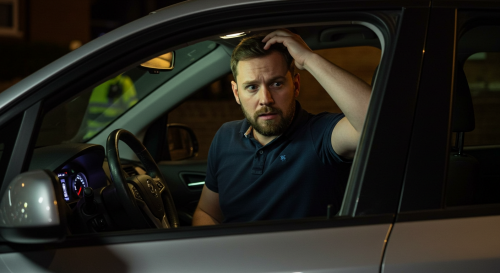Driving Whilst Disqualified? What Will Happen if Caught

Driving Whilst Disqualified? What Will Happen if Caught
Driving whilst disqualified in England is a serious offence with significant legal ramifications. This article delves into the implications of such an offence, the potential defences, and the consequences that follow, emphasising the importance of seeking legal advice.
Legal Framework

Under the Road Traffic Act 1988 and the Motor Vehicles (Driving Licences) Regulations 1999, driving whilst disqualified is a criminal offence. This law prohibits individuals from driving any motor vehicle on a road or other public place if they have been disqualified from holding or obtaining a driving licence.
Consequences of Driving Whilst Disqualified
The consequences of driving while disqualified are severe. They include:
- Criminal Record: Conviction leads to a criminal record, which can impact future employment and travel opportunities.
- Imprisonment: The offence can result in a prison sentence of up to six months.
- Fines: Courts can impose unlimited fines, depending on the severity of the offence.
- Extended Disqualification: The period of disqualification can be extended.
- Vehicle Seizure: In certain cases, the offender’s vehicle may be seized or even forfeited.
Why Legal Advice is Crucial

- Complex Legal System: Navigating the legal system can be challenging, and a qualified solicitor can provide clarity and guidance.
- Defence Strategy: A legal professional can help develop a defence strategy, which might not be apparent to a layperson.
- Mitigation: Even if a conviction is inevitable, a solicitor can help in mitigating the sentence.
- Understanding of Prosecution Techniques: Experienced solicitors understand prosecution tactics and can effectively counter them.
- Representation in Court: Professional representation in court is invaluable and can significantly impact the outcome of the case.
Potential Defences
Though limited, there are a few defences available for those accused of driving whilst disqualified:
- Lack of Knowledge: If the individual was not aware of the disqualification, either due to not receiving the notice or due to administrative errors, this can be a defence.
- Duress: If the person was forced to drive under threat or compulsion, this might be a valid defence.
- Necessity: In rare cases, driving under a genuine emergency might be considered a defence.
The Role of Legal Advice

Legal advisors play a pivotal role in these situations. They can advise on the likelihood of success of certain defences, prepare necessary documentation, and represent the individual in court proceedings. Their expertise and experience can be the difference between a conviction and an acquittal or a reduced sentence.
Conclusion: Driving whilst Disqualified

Driving whilst disqualified in England is a grave offence with serious consequences. The law in this area is complex, and the potential defences are limited and strictly applied.
Given the severity of the potential penalties, including imprisonment, fines, and an extended period of disqualification, it is crucial for anyone charged with this offence to seek legal advice.
A qualified solicitor can provide essential guidance, develop a defence strategy, mitigate the sentence, and ensure fair representation in court.
Their role is indispensable in navigating the legal challenges and minimising the potential adverse impacts of a conviction.
Notice: Informational Content Disclaimer
The content provided on this website, including articles, blog posts, and other informational materials, is intended for general informational purposes only. It is not intended as, and should not be considered, legal advice.
Visitors to this website should be aware that the information presented here is not a substitute for seeking legal advice from a qualified solicitor or legal professional. Each individual's legal situation is unique, and the information provided may not be applicable to specific circumstances.
If you require legal advice or have specific legal questions, we encourage you to contact us directly. Our experienced team of solicitors is here to assist you with your legal needs and provide tailored advice to address your concerns.
Please be advised that any communication through this website, including the use of contact forms or email, does not create a solicitor-client relationship. Confidential or time-sensitive information should not be sent through this website. To establish a solicitor-client relationship and discuss your legal matters in detail, please contact us for a consultation.
We strive to provide accurate and up-to-date information, but we make no representations or warranties regarding the accuracy, completeness, or suitability of the information contained on this website. We shall not be liable for any reliance placed on the information provided herein.
Thank you for visiting our website. We look forward to the opportunity to assist you with your legal needs.




